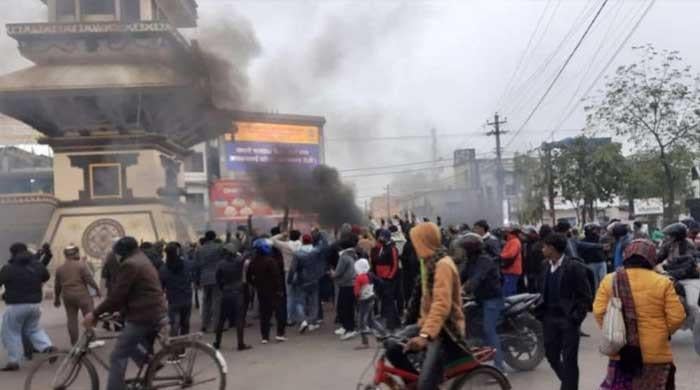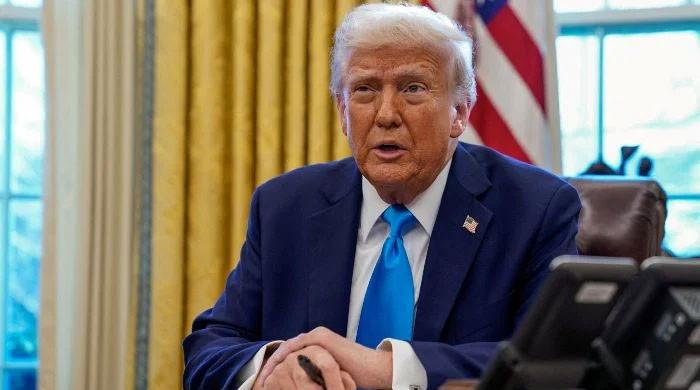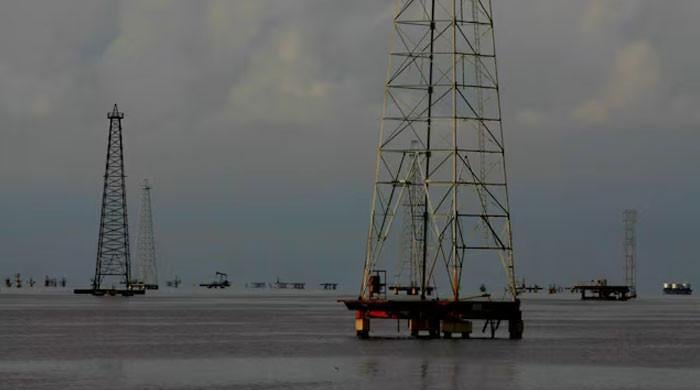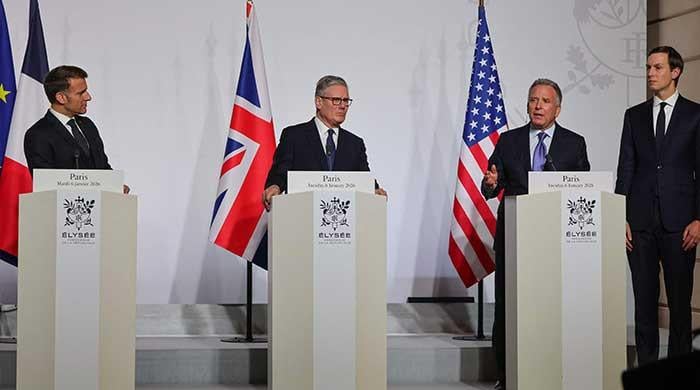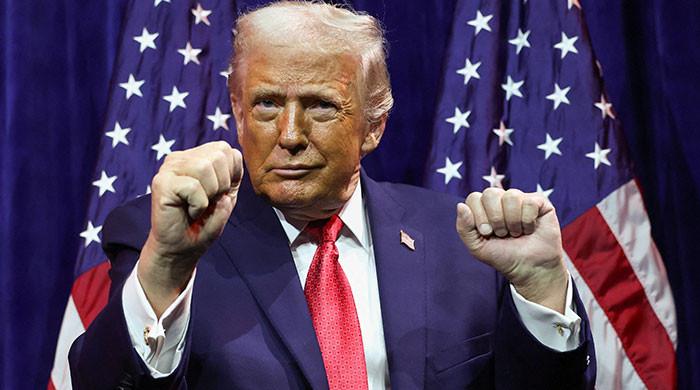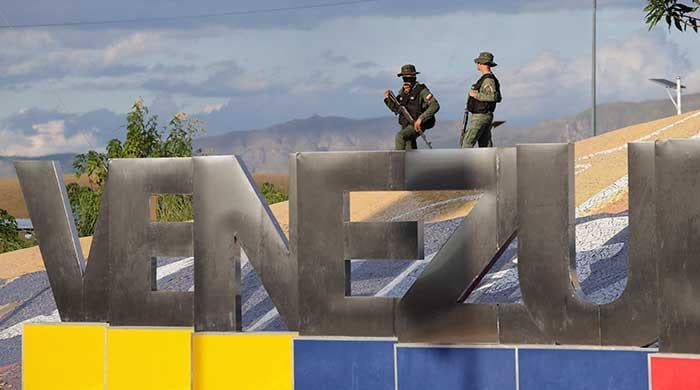‘Spy agency told Justin Trudeau in 2017 RAW working against Canadian Sikhs but no action taken’
CSIS recommended action against Indian intelligence officers posted in Canada
September 20, 2023
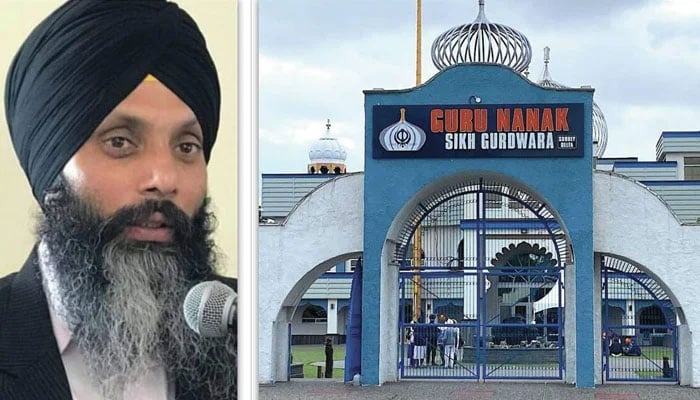
LONDON: Canada’s national security agency warned its government in 2017 that Indian intelligence services were using its Indian consulate's diplomatic networks to target the Canadian Sikh community and that this was a threat to Canada’s national security but the government hushed the issue due to “political sensitivity” as Prime Minister Justin Trudeau was planning to visit India at that time, according to classified Canadian intelligence documents.
The Canada Security Intelligence Service (CSIS) warned in a report in 2017 that Indian intelligence networks in Vancouver and Toronto planned to attack Sikhs and recommended that Indian spy agency Research and Analysis Wing (RAW) networks expanding influence and interference in Canadian national affairs should be disrupted for national security reasons but the Canadian government blocked CSIS’s recommendation due to “political sensitivity”, according to a confidential Canadian foreign interference review.
The sensitive report was prepared by the National Security and Intelligence Committee of Parliamentarians (NSICOP), a body with a broad mandate to review Canada’s national security and intelligence organisations.
CSIS wanted to immediately launch an operation against the Indian spy network working against Canadian Sikh interests but Ottawa blocked the operation recommendation as it feared the operation would annoy India and impact Prime Minister Justin Trudeau’s upcoming trip to India. As a result, according to the top-secret report finalised and submitted in June 2019, the Indian diplomats in Vancouver and Toronto continued to run the networks “unabated” while the Canadian government looked the other way.
The details surfaced within hours after PM Justin Trudeau's bombshell revelations in Canada’s Parliament disclosing that India’s government was directly linked to the targeted murder in June this year of prominent Vancouver Sikh community leader Hardeep Singh Nijjar, who was President of the Canadian chapter of Khalistan Referendum, the campaign being spearheaded by pro-Khalistan separatist group Sikhs For Justice (SFJ) across the Western world.
PM Justin Trudeau also revealed that during the G20 Summit in India two weeks ago, he categorically told the US President Joe Biden and PM Narendra Modi that India had killed Nijjar inside a British Columbia Gurdwara on Canadian soil. Canada has also ordered the immediate removal of RAW’s Canada station chief to leave the country, clearly suggesting that he had organised the killing using local networks of Indian government spies – identified first in 2017 by CSIS.
The report says that Justin Trudeau’s administration frequently failed to act on CSIS warnings regarding Indian diplomats's interference in Sikh diaspora communities and Canadian elections.
The report also mentions two other countries interfering in Canada but India is quoted as the worst offender. The NSICOP says that around 2016, CSIS discovered “an increase in the volume” of Indian intelligence activity in Canada, targeting the Indo-Canadian Sikh diaspora and government institutions for influence and infiltration.
The Canadian intelligence specified that two Indian diplomats were responsible for this, an intelligence liaison named "Parag Jain" posted in Ottawa, and “Amar Jit Singh", the Consul at the Indian Consulate in Vancouver, who was also carrying out undeclared intelligence activities by way of meeting Sikh organisations, paying illegal money, trying to get pro-India Sikhs in Gurdwara bodies, arranging visas for those who opposed Khalistan, putting pro-Khalistan Sikhs on “Black lists” and running campaigns against Sikhs who didn’t support the Indian government and its agenda.
Singh’s activities included “recruiting sources and agents to infiltrate, monitor and co-opt Sikh diaspora communities,” as well as “interfering and influencing voting in favour of those that were assessed as pro-India candidates.” Both Singh and Jain were also allegedly “facilitating visas for Indo-Canadian politicians and their friends”.
According to the CSIS report, the Indian diplomats used a community proxy to donate “cash to a federal party candidate”. When CSIS found full evidence of Indian involvement in illegal interference activities in 2016, it planned to use new “threat reduction” powers implemented by then Prime Minister Joseph Harper's government in early 2015 to target and “roll up” India’s clandestine cells in Canada but the current PM’s government didn’t allow CSIS to neutralise the Indian networks or reduce their activities.
The Indian diplomats, says the report, had hired journalists and community leaders as their agents.
“The goal of the 'Threat Reduction Measure' was to disrupt the network and reduce the volume and scope of activities carried out by Indian intelligence in Canada,” the NSICOP report says.
“CSIS expected that Mr Jain and Mr Singh’s networks would be disrupted and that they would no longer be able to recruit new individuals,” the report adds.
In May 2017, CSIS director David Vigneault met with Justin Trudeau’s then-national security advisor, Daniel Jean — the deputy minister for Public Safety and the Global Affairs director of counter-terrorism crime and intelligence — to seek support for taking down India’s clandestine networks but was advised by the Privy Council Office that “in view of the significant political sensitivity”, it’s important for CSIS to “be mindful of this context and take a limited approach to briefings and interviews”.
According to the report, “CSIS had developed a more ambitious [plan to disrupt Indian intelligence networks] but scaled down its intervention on advice from Privy Council Office and Public Safety”. CSIS report says that its concerns grew after it was established that the Indian state had hostile plans for Sikhs but was unable to do anything to disrupt the growing Indian intelligence networks targeting Sikh communities in Vancouver and Toronto and no action was taken against the two Indian diplomats openly violating their diplomatic mandate.
The report says that the relevant Canadian department Global Affairs Canada “had committed to inform senior Indian diplomats in Canada of Mr. Singh’s activities” but decided not to raise it with “senior Indian diplomats” due to political reasons and the Indian networks interfering in Canada affairs were untouched. Citing an October 2017 internal CSIS briefing note, NSICOP’s report says “CSIS noted that Mr Singh ‘continues his [foreign interference] activities unabated.’”
Considering Trudeau’s statement on Monday, that Canadian intelligence has evidence linking India to the targeted shooting in June 2023 of Sikh leader Nijjar outside a Vancouver-area temple — circumstances surrounding CSIS’s halted national security intervention in Vancouver six years earlier — may become a question for examination in Canada’s pending inquiry into foreign interference. Furthermore, Canada’s continuing lack of a foreign agent registry could also be probed.
Ahead of attending the G20 Summit, Canadian Premier Justin Trudeau said that he will initiate public investigations into foreign interference, including those linked to India.
In April 2020, Geo News in a report revealed that Indian intelligence agents in Canada working for RAW and Intelligence Bureau (IB) attempted to use money and disinformation to “covertly influence” Canadian politicians and falsely link Pakistan and its diaspora with “terrorism” through well-funded lobbying.
The report — part of a court case — revealed that Canadian security agencies found that India’s two main intelligence branches had asked an Indian citizen to sway politicians in this country into supporting Indian government interests. The report said the RAW and IB were behind the operation in 2009.
The disclosure was made in Federal Court proceedings involving an Indian national accused by the Canadian Security Intelligence Service of espionage on behalf of Indian spy agencies.
Identified in court records only as “A.B.,” the man was editor-in-chief of an unnamed Indian newspaper. During his stay in Canada, he met Indian intelligence more than 25 times over six years leading up to May 2015. The unnamed man confirmed that he was “asked by the IB and RAW to perform various functions".
The court papers revealed that Indian spy agencies wanted him to “act as an unofficial lobbyist or diplomat [...] You stated that you were tasked by RAW to covertly influence Canadian government representatives and agencies on behalf of the Indian government,” according to a letter sent to him by an immigration official.
“You stated that you were told to identify random Caucasian politicians and attempt to direct them into supporting issues that impacted India,” the letter continued.
The letter further read: "You stated that the guidance from RAW included that you were to provide financial assistance and propaganda material to politicians in order to exert influence over them.”
One of his tasks was “to convince politicians that funding from Canada was being sent to Pakistan to support terrorism,” according to the letter, dated May 30, 2018.
According to court papers, the security screening investigation was triggered when he applied to immigrate to Canada where his wife lived who was already a Canadian national. Allegations made against RAW in the Canadian court were especially embarrassing for India because only in December 2019 a German court sentenced an Indian couple after they admitted to spying on Kashmiri and Sikh freedom groups for the Indian foreign intelligence service RAW.
Court documents said the German couple, named only as "Manmohan S" and his wife "Kanwal Jit K", were paid more than €7,000 (£6,000) for passing on information.
Manmohan S was given an 18-month suspended prison sentence for espionage while his wife received a hefty fine. The court in Frankfurt was told that Manmohan S aged 51, was recruited by RAW in 2015 and asked to spy on Kashmiri freedom groups. He attended regular meetings with an Indian intelligence officer from July 2017 and was paid €200 a month for the information he provided.
It’s believed that last week Justin Trudeau went public against Indian nefarious activities only after the brazen assassination of Nijjar on June 18 outside a Sikh cultural centre in Surrey, British Columbia. Immediately after that, Canada expelled the head of Indian intelligence in Canada Pavan Kumar Rai.




